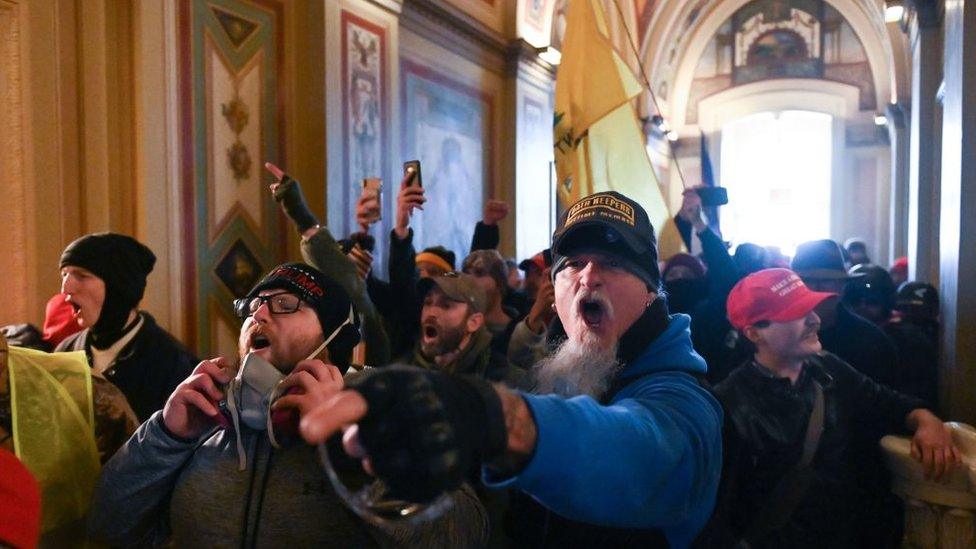Republicans block 9/11-style congressional probe of Capitol riot
- Published
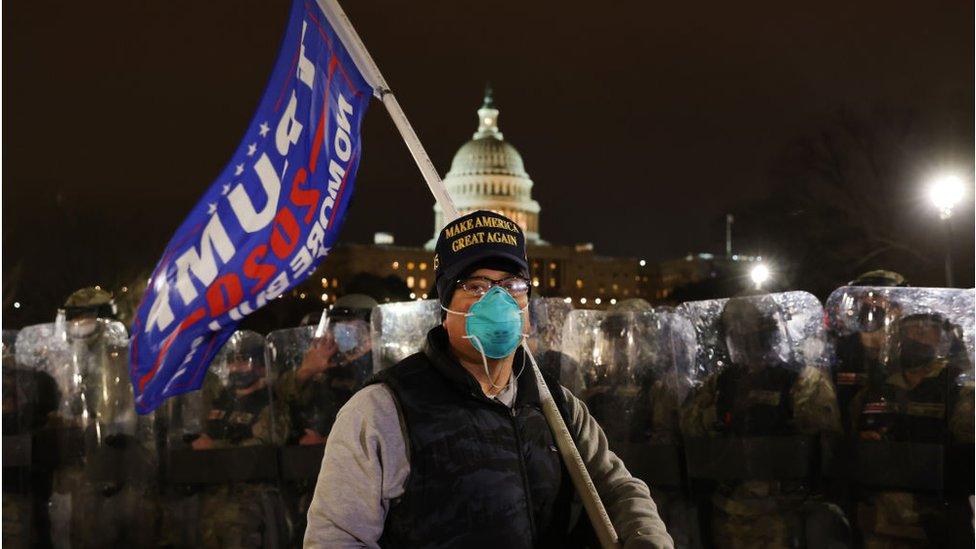
Republicans in the US Senate have blocked a bill to establish a bipartisan commission to investigate the Capitol Hill riot.
The measure passed the US House of Representatives last week.
Members of ex-President Donald Trump's party said the riot is already being investigated by congressional panels.
Democrats argued that forming a commission, similar to the one created after 9/11, would prevent any repeat of a similar invasion on the Capitol.
Trump supporters stormed Congress on 6 January in a failed bid to overturn the certification of President Joe Biden's victory in November's election.
The riot left five dead, including a Capitol police officer.
Although 54 senators, including six Republicans, voted in favour of creating the commission, the bill failed.
It needed 60 votes due to a rule called the filibuster where 60 of the 100 senators must vote in favour of a bill for it to pass.
Speaking from outside an ice cream parlour in Ohio on Thursday, Mr Biden condemned Republicans, saying: "I can't imagine anyone voting against establishing a commission on the greatest assault since the Civil War on the Capitol."
When a mob stormed the US capitol
Also before the vote, the mother of police officer Brian Sicknick - who died a day after the attack from a stroke - visited Capitol Hill along with her son's girlfriend, Sandra Garza, to lobby lawmakers to support the commission.
"Not having a January 6 Commission to look into exactly what occurred is a slap in the faces of all the officers who did their jobs that day," said Gladys Sicknick.
She suggested that any members of Congress opposed to the bill should visit her son's grave in Arlington National Cemetery, just outside the US capital.
Investigators say Mr Sicknick was targeted by a rioter with some kind of chemical spray, though a post-mortem examination found he died from natural causes.
More than 440 suspected participants in the attack have been arrested and officials say they expect to charge another 100.
The investigation is one of the most extensive ever undertaken by the Department of Justice, and the number of cases has overwhelmed the Washington DC court system.
Several of those arrested were police officers, and dozens were military veterans. The defendants face charges including trespassing in a federal building, violent entry and disorderly conduct.

Trump still holds sway

The reasons behind the filibuster were two-fold. Donald Trump himself has been actively working against the commission, which could have probed his actions - and inaction - before and during the assault. It's very clear the ex-president still has considerable sway within the party.
Even Republicans who care little for Mr Trump, however, were concerned that the investigation would reflect poorly on the Republican party as a whole - and possibly stretch into 2022, damaging their hopes in the mid-term congressional elections.
Democrats could unilaterally form a new "select" congressional committee to investigate, but Republicans will be quick to dismiss it as a political show.
The prospects for a widely accepted "official" account of that horrific day now seem dim, at best.

What is the filibuster?
Friday saw the first successful use during the Biden presidency of a Senate filibuster - a tradition that requires 60 of the 100 senators to vote in favour of a bill.
The upper chamber is now evenly split 50-50 between the two parties, so Democrats need 10 Republicans to side with them on certain legislation.
The Republican use of a filibuster will fuel calls by Democratic supporters to lower the threshold for passing bills to 51 votes.
All eyes are on two moderate Democratic senators who have so far resisted pressure to support such an extreme step: Joe Manchin of West Virginia and Kyrsten Sinema of Arizona.
On Thursday, Mr Manchin said there was "no excuse" to oppose the commission, but he still did not support abolishing the filibuster.
"I'm not ready to destroy our government," he said.
Ms Sinema said the bipartisan commission would be a "critical step" towards investigating the "horrific" Capitol riot.
What did Republicans say?
The Republican leader in the Senate, Mitch McConnell, argued that ongoing bipartisan hearings into the Capitol riot by the Senate rules and homeland security committees were sufficient.
Mr McConnell said on Thursday that a commission would be "extraneous".
Most other Republicans also stuck by their opposition to the commission. Texas Senator John Cornyn - who once supported the idea - said he believed Democrats would use the body as a political cudgel.
Centrist Republican senator, Susan Collins of Maine, had proposed compromises to win over support from members of her party.
Her amendment to the bill would have required the Democratic chair and Republican vice-chair of the commission to "jointly appoint" staff, and ensure its work did not spill over into next year's campaigning for US mid-term elections.
Former House Speaker Paul Ryan, who has kept a low profile since stepping down in 2018, is reportedly entering the fray with an implicit attack on Mr Trump.
In a speech on Thursday to the Ronald Reagan Presidential Library in Simi Valley, California, Mr Ryan was reportedly to exhort fellow Republicans to move on from the "populist appeal of one personality", otherwise "we're not going anywhere".
Last week, 35 Republicans in the House crossed party lines to vote to back the establishment of a commission.
That vote was seen as a test of loyalty to Mr Trump, who was acquitted by the Senate of inciting insurrection on 6 January over his unproven claims that last year's election was stolen from him.
He continues to propagate the conspiracy theory on his personal blog.
Related topics
- Published8 February 2021
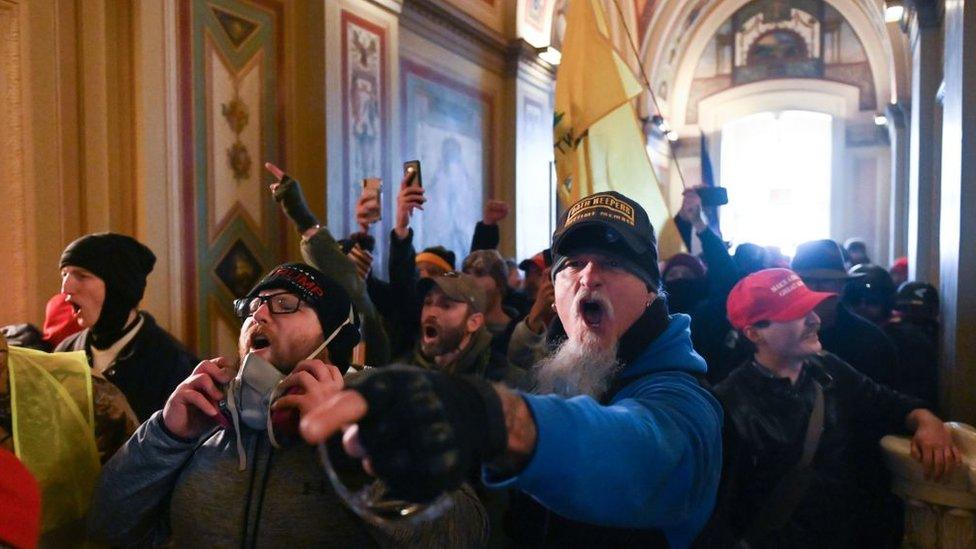
- Published15 January 2021
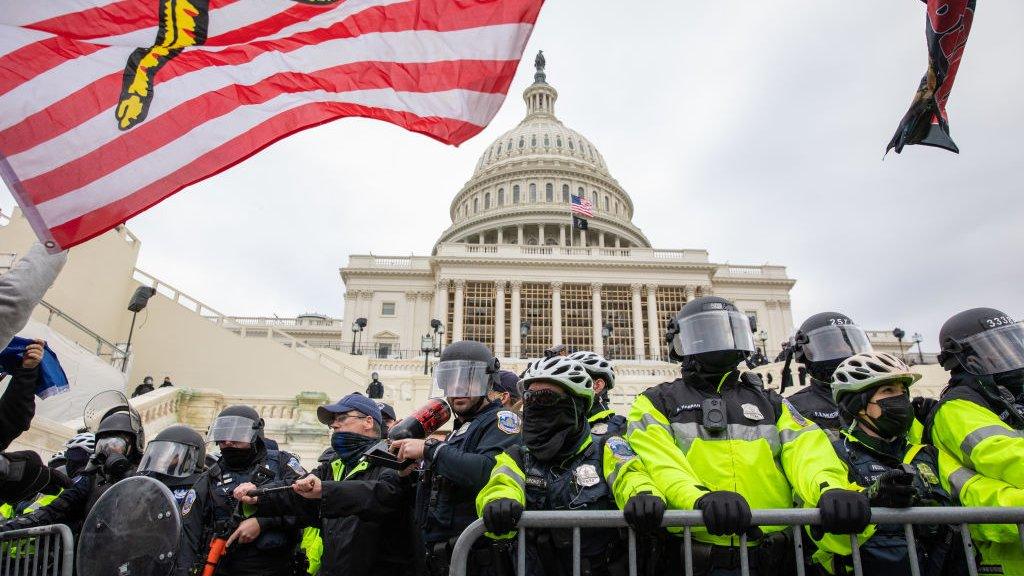
- Published10 January 2021
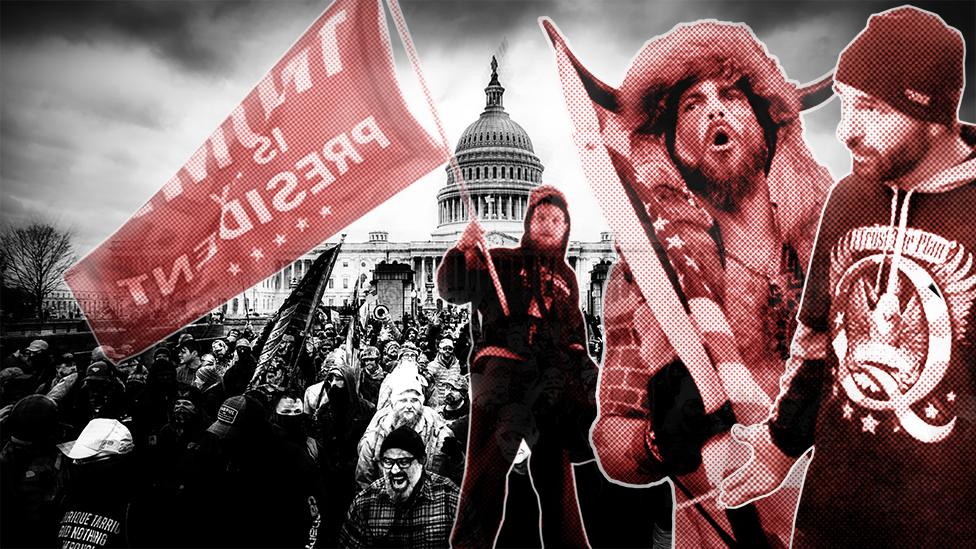
- Published16 April 2021
